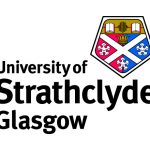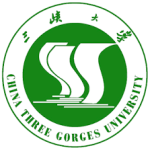Can I Get A Loan To Study Abroad In Nigeria? As a student from Nigeria seeking to study abroad but is currently seeking a means to sponsor the expenses, there are diverse options you can explore.
There is now a massive surge in the number of students in Nigeria who now study abroad.
According to the Business Day report, data from the British government showed that about 6,798 students from Nigeria were currently studying abroad in 2019.
In 2022, it increased to a massive 59,053, which results in about a 768.7 per cent increase. This is not all as it is perceived that the figures will still increase.
Many people desire to go abroad for different reasons, for students, they go to expand their knowledge base by learning from world-class schools.
However, education does not come cheap, and the current economic situation can serve as a discouraging factor and a hindrance.
Regardless, there are different ways to still ace your goal of studying abroad and they include:
- Scholarships
- Student loans
- Grants or Bursaries
- Studying and Working
- Crowdfunding etc.
In this article, we will explore the student loan option and everything you need to know as a Nigerian student seeking to study abroad.
Table of Contents
What are Student Loans?
Student loans are loans specifically designed to assist students with their post-secondary school and post-graduate education. It covers areas like tuition, book supplies and living expenses.
There are different types of Loans To Study Abroad and their interest rates also differ. The repayment terms and conditions also differ according to the type of loan.
Federal loans are solely provided by the federal government while private loans are provided by other institutions like banks, credit unions and other financial institutions. Their eligibility conditions, loan amounts, and interest rates are also different.
Requirements for Loan To Study Abroad
Different student loans have different criteria. The requirements differ due to different reasons like the loan company, the type of loan, amount, and nationality, among others.
But to access the loan there are some basic requirements that everyone must meet. These requirements include:
1. Proof of Acceptance
This is a universal requirement for the student loan application and it equally stands for Nigerian students who want to study abroad too.
Before you apply for a student loan to study abroad as a Nigerian student, you need to have your proof of acceptance.
The proof of acceptance is a letter that shows you have gained admission into a university or a college abroad.
This implies that before you apply for a student loan, you need to have gotten admission into a school.
Additionally, your school must be one of those schools endorsed by your loan provider.
Your proof acceptance should contain the following information:
- Your name
- Major of study, if declared
- Credit hours earned to date
- Start and end dates of your current enrollment term
- Enrollment status (i.e., full-time or part-time)
- Anticipated date of graduation
- Class (freshman, sophomore, junior, or senior)
- Grade point average (GPA)
2. Student Visa
A student visa is another important requirement before applying for a student loan.
A Nigerian student who studies abroad is viewed as an international student.
The visa allows you to live in the country where you are currently studying.
Your loan provider will mostly ask you to attach a copy of your student visa as you proceed with the student loan application process.
3. A Cosigner or Good Credit History
Oftentimes, a good credit history is required if you want to get a loan to study abroad. But as a Nigerian student seeking to study abroad, you would not have this because you have not lived abroad before.
This is the reason why some loan providers require a cosigner before they approve your loan. A cosigner is an adult, mostly a resident of your host country who is willing to sign for a loan together with you. In some cases, the cosigner is required to repay the loan if the borrower defaults.
For example, as a Nigerian student who has gained admission in the U.S. or the U.K. and who is applying for a private student loan, you will need a cosigner who is a resident in these countries who will sign alongside you.
However, some loan providers do not require a cosigner like MPower and Prodigy Finance.
4. Necessary Documents
These are the documents you need to provide before going on to proceed with the application process.
As a Nigerian student who wants to apply for a loan to study abroad, you need to have:
- Proof of identity
- Educational transcripts
- Estimated cost of studying and living in the country U.S. This is for those who want to study in the U.S. and your school will provide an official cost for you).
- Copies of documents you have for the qualifying exams you took to gain admission.
- Proof of identity
Who can apply for student loans?
Any student including Nigerian students can apply for a student loan as long as they meet the eligibility requirement of the loan provider.
Student loan options available for Nigerian students
There are different Loan To Study Abroad available for Nigerian students. Some of them include:
MPower Finance
MPower Finance does not require a cosigner. They exist to benefit the public rather than make profits. In recent reports, They currently record 60 million in equity funding and over $200 million in debt finance. MPower currently supports over 400 schools in different countries. The application process for the MPower loan is online
Supported schools:
Mpower currently supports about 400 schools in different countries. Maximum amount: You can borrow from $2,100 to $100,000 to cover the cost of your education while the fixed interest rate does not change.
Eligibility conditions:
for a Nigerian student to qualify for the MPower loan, they have to meet the following conditions:
- Must be admitted or currently attending one of the over 400 schools US/Canada MPower is affiliated with.
- Must be a graduate or undergraduate student within two years of graduation
- Must provide a valid and unexpired ID card.
- Must provide all of the supporting documents required.
To know more about the eligibility conditions click here.
What do the loans cover: loans from MPower currently cover up to 100% of the education expenses and living expenses.
Repayment term: students start repaying the loans 45 days after the disbursement of the funds. During this period, payment will be interest only until graduation with an additional six months of grace period. The remaining months of repayment are calculated using a 120-month amortization schedule.
Supported programmes: MPower Finance supports all types of degrees including Master’s, MBA, PhD, Bachelor’s, J.D., Diplomas and associates (Canada only), LL.M, M.D., D.D.S. and Select boot camps.
Interest rate: they have a fixed interest rate of 12.99% (13.98% APR¹) but give a 0.25% discount if the loan payment is made through automatic withdrawal from your bank account.
To get started with the MPower student loan, click here.
Ascent Funding
Ascent is a private loan company that offers loans to students willing to further their education. The loans may be with or without a cosigner. They also offer affordable rates, flexible plans and up to 1% cash back at graduation with other benefits. The application process is also online. To start an application, click here.
Supported schools: click this link to know the list of schools supported by Ascent funding.
Maximum amount: Students can borrow from $2,100 to as much as $200,000.
Eligibility conditions: to qualify for the Ascent student loan, you must:
- Earn/Have a cosigner that earns at least $24,000 per year
- The above must have at least two years of credit history.
- As an international student, you must have a U.S. citizen or permanent resident as a cosigner.
Note that loans are available to U.S. citizens, permanent residents, DACA students and international students. To know more about the eligibility conditions, click here.
Repayment term: they have a repayment term from 5 years to as much as 15 years.
Supported programmes: Ascent funding currently supports undergraduates, MBA, medical science, law and general graduate school programmes.
Interest rate: cosigned loans have a fixed interest rate that starts from 4.48% to 15.51% and a variable rate of 5.94% to 15.83% including the 0.25% autopay discount.
Prodigy Finance
Prodigy Finance was founded in 2007 and it is a Fintech organization with an office in London, United Kingdom. So far, Prodigy Finance has disbursed over $1.4 billion. The 2022 impact report from Prodigy Finance states that they have served over 28,000 students globally in 850 schools in 150 countries. Additionally, the application process is equally online.
Supported schools: Prodigy Finance currently supports about 850 schools in 150 different countries.
Maximum amount: the amount to be borrowed is dependent on the school and the course of study but can cover up to 100% of the tuition and living expenses.
Eligibility conditions: The basic requirements to endorse eligibility include:
- Must be admitted to a school and programme in the US, Canada & the UK supported by Prodigy Financing.
- Must be willing to study abroad.
- Must reside in one of the countries supported by Prodigy Financing.
Repayment term: Payment doesn’t start until 6 months after studies if you study abroad on a Prodigy loan. They have a flexible repayment term of 7 to 20 years
Supported programmes: Prodigy Finance currently supports programmes in Business, STEM, public policy, law and health science courses. To get started with the Prodigy application process, click here.
Interest rate: the minimum annual percentage rate (APR) they offer is 11.18%. Individual rates differ according to the circumstances, the loan amount and the term. The average APR for student loans is 14.88%.
Conclusion
These are not the only loan options available for Nigerian students. To know more about international loans open for Nigerian students, click here.
As a Nigerian student who desires to study abroad, do not let costs weigh you down as these loan facilities give ample time to repay the loans. In addition, the interest rates are very reasonable too.
To get started with the loan application process to help with your studies, reach out to us as we are here to help you.








